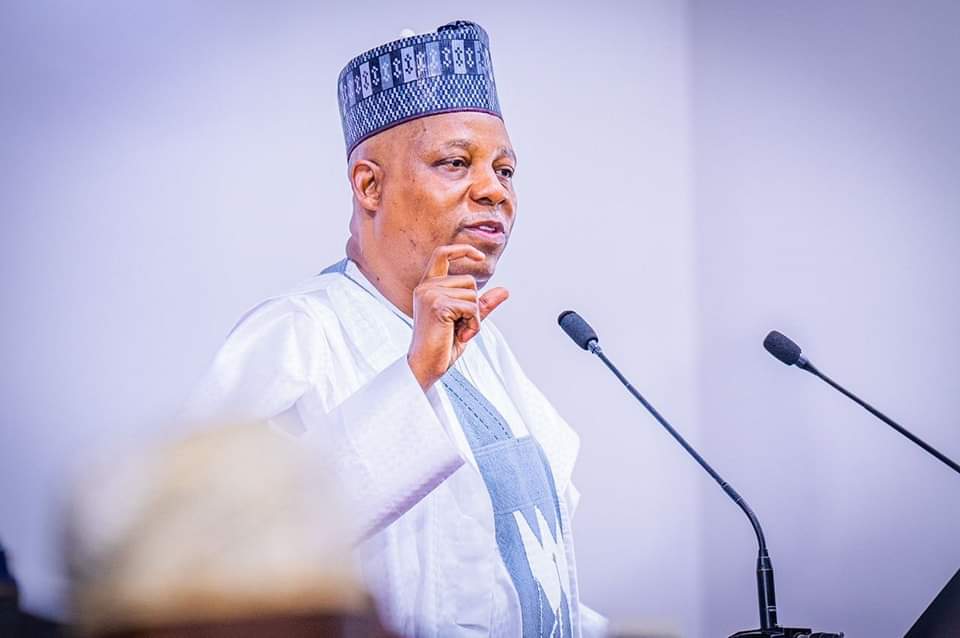About two months ago, Vice President Kashim Shettima, no less, warned that Nigeria’s elite have just about 10 to 20 years to improve the quality of governance before there won’t be any country for them to preside over. It was such a profound and accurate statement, especially coming from that high in the corridors of power, that as Nigerians, we should have taken much more seriously.
For context, let’s recall that this is only the second time such a statement has been made in Nigeria, to the best of my knowledge at least. The first time was in 2005, the year in which the youngest of first-time voters in last year’s general elections were born. In that year, the message came via a report of the American National Intelligence Council (NIC) titled “Mapping Sub-Saharan Africa’s Future” which predicted that Nigeria would fall into the “failed state category”, as measured by the Fund For Peace (FFP) by 2015 if concrete actions were not taken to avert our then continuing slide down slippery slope as a country.
Nigerians erupted with anger and dismay at the American government, particularly the Central Intelligence Agency (CIA), to which many Nigerians erroneously attributed the report at the time, to the extent that then President Obasanjo was compelled to issue a rebuttal. But let’s look at that year critically again. In Nigeria in 2005, there was no Boko Haram, no IPOB, no bandits or banditry, and no kidnapping or kidnappers. Today, all of those things and the danger they represent to our collective existence are commonplace and well-known to even five-year-olds. Few people, even in Maiduguri, had heard of Sambisa forest or Chibok, or Shekau, or Turji or Internally Displaced Persons (IDPs) camps in 2005. Fewer still had heard of Nnamdi Kanu or Simon Ekpa. Today, even a ten-year-old is familiar with those names and the terror they represent.
Nigeria was in fact ranked in 54th place in the very first edition of the Failed States Index (now Fragile States Index), FSI, launched by FFP and Foreign Policy magazine that year. In 2005, Nigeria was not among the top 20 states most likely to fail, and Anambra, Borno, Imo, Katsina, Niger, Sokoto, Yobe and Zamfara were among the quietest and most peaceful states anyone could live in the country. Today, most of those states are littered with official and unofficial IDP camps, and Nigeria itself is ranked 15th most fragile country—that is, only 14 other countries are worse off—and sharing company with recent hotbeds of war and instability like Libya, Mali, Ukraine, Iraq, Venezuela, etc, on the index’s “red alert” category.
In fact, since the turn of the last decade in 2010, Nigeria has been consistently ranked among the top 20 most fragile, read failing, states in the world. Equally portentous is that three of our next-door neighbours – Cameroon, Chad and Niger Republic – are in the same category or even worse. This means that even if we manage to stay afloat beyond Shettima’s 10 or 20 years, we will still remain in acute danger if, or when, one, two or all three of those neighbouring states fail.
The real message in Shettima’s statement could, therefore, be restated thus. One, the seeds of today’s heightened instability in Nigeria were planted years ago. Two, today’s situation only portends an even greater danger of failing as a country than we are now. And third, everything depends on what the elite class does or does not do with respect to improving the quality of governance and managing conflict in the country. This is not doomsday prophecy or alarm-mongering but a genuine and sincere warning to all of us, particularly the elite, which, to his credit, Shettima addressed specifically when he spoke.
Boko Haram, IPOB, banditry and kidnapping were largely unknown to most Nigerians in 2005. But the seeds of degeneracy, bad governance, neglect and exclusion of millions of Nigerians that would grow into those things by the following decade were already everywhere visible in 2005, at least for those who could tell. And rather than berating American intelligence agencies, as we did mostly at the time, we could have been more sober and taken their warning more seriously and developed the sort of conversations and governance mechanisms that would have helped us avert where we are now. Indeed, our own intelligence agencies should have reached such conclusions earlier, if they but knew their onions, in order to help the Nigerian state avert the danger we now all face.
So, today, we should all hearken to Shettima’s message, for, what has happened in Nigeria in just the past two weeks should strike solemnity and sobriety into the hearts of everyone concerned with the long-term stability of this country. What happened? First, President Bola Ahmed Tinubu jetted out to France on a “private visit”. And then, almost immediately, as if on cue, three situations that were already quite serious in Nigeria ramped up to very dangerous levels.
First, a raft of kidnappings, demands for impossible ransoms, and the killing of hapless victims ensued throughout the country in a way that had not been seen before. Nigeria has been battling a crisis of kidnappings for ransom for about 10 years now, but events reached a different and higher qualitative level in the past two weeks, to the extent that newspapers began to talk about an “epidemic” of kidnappings.
Second, the naira’s free fall in recent months got into a never-seen-before gear, falling by nearly 30 per cent from about N1200 to over N1500 to the dollar in less than a week. Things got so bad that even bureau de change operators closed shop in protest. Third, the prices of food items simply shot over the roof and the word “hunger” appeared in quantitative significance in newspapers throughout the country within days.
My point then is that if left unchecked for long, the cataclysmic consequences of these events, happening all at once, could bring about the sudden collapse of any country, even one steeped in religious fatalism as Nigeria. There is only a short distance to travel between what we saw in the past two weeks in Nigeria and people pouring into the streets or packing their bags to leave to nowhere in particular. Anyone familiar with the history and sociology of mass instability would not seek a repeat of the past two weeks in Nigeria anytime soon.
This is why I believe Shettima’s statement is actually an understatement. Nigeria’s elite do not have up to 10 years to turn things around in this country, let alone 20. The massive change in instability between 2005 and 2015, and from then to date, are more than enough proof of that. Moreover, the problem is not to “improve the quality of governance” in Nigeria as such because to say you want to “improve” something is to imply that you are already doing fairly well, but still want to do better. That is not Nigeria’s situation right now.
The challenge of governance in Nigeria, for all intents and purposes, is not merely to improve it, but to overhaul it root, stem and branch altogether; to, let me say, decolonise it. And it is to that, that I now turn.

 Join Daily Trust WhatsApp Community For Quick Access To News and Happenings Around You.
Join Daily Trust WhatsApp Community For Quick Access To News and Happenings Around You.



